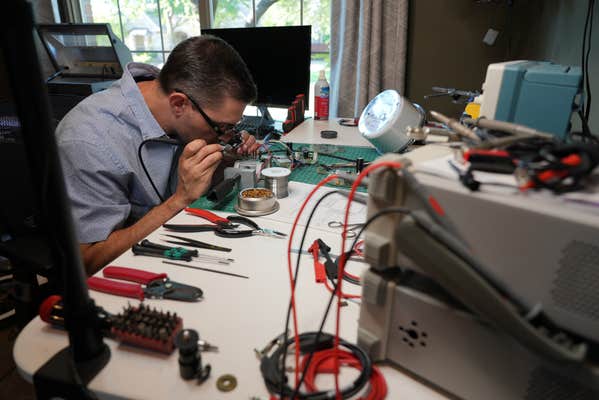
Breaking News
 "A.G.E.S. Fall Conference" on BrightU: How to spot "imposter" farmers and hidden
"A.G.E.S. Fall Conference" on BrightU: How to spot "imposter" farmers and hidden
 Endless Hot Water is the Smartest Spring Upgrade for Your RV
Endless Hot Water is the Smartest Spring Upgrade for Your RV
 Epstein's Friend Howard Lutnik EXPOSED
Epstein's Friend Howard Lutnik EXPOSED
Top Tech News
 New Spray-on Powder Instantly Seals Life-Threatening Wounds in Battle or During Disasters
New Spray-on Powder Instantly Seals Life-Threatening Wounds in Battle or During Disasters
 AI-enhanced stethoscope excels at listening to our hearts
AI-enhanced stethoscope excels at listening to our hearts
 Flame-treated sunscreen keeps the zinc but cuts the smeary white look
Flame-treated sunscreen keeps the zinc but cuts the smeary white look
 Display hub adds three more screens powered through single USB port
Display hub adds three more screens powered through single USB port
 We Finally Know How Fast The Tesla Semi Will Charge: Very, Very Fast
We Finally Know How Fast The Tesla Semi Will Charge: Very, Very Fast
 Drone-launching underwater drone hitches a ride on ship and sub hulls
Drone-launching underwater drone hitches a ride on ship and sub hulls
 Humanoid Robots Get "Brains" As Dual-Use Fears Mount
Humanoid Robots Get "Brains" As Dual-Use Fears Mount
 SpaceX Authorized to Increase High Speed Internet Download Speeds 5X Through 2026
SpaceX Authorized to Increase High Speed Internet Download Speeds 5X Through 2026
 Space AI is the Key to the Technological Singularity
Space AI is the Key to the Technological Singularity
 Velocitor X-1 eVTOL could be beating the traffic in just a year
Velocitor X-1 eVTOL could be beating the traffic in just a year
Exclusive: Hacker reveals smart meters are spilling secrets about the Texas snowstorm

Power companies across Texas have refused to disclose which areas of the state were exempt from controlled blackouts after a devastating snowstorm crippled the power grid in February—but one hacker has found that smart meters, the electrical devices on the sides of homes and businesses that monitor energy consumption, are quietly broadcasting data that could be used to determine what infrastructure may have been protected.
In the days following the historic freeze, companies tied to the state's privately-run grid were met with pressing questions from citizens and lawmakers alike over how it was decided who would and who wouldn't be plunged into darkness.
A Dallas-based hardware hacker and security researcher known as Hash first noticed one such refusal in early March from Austin Energy, a publicly-owned utility provider in the Texas capital.

Austin Energy has continually argued that disclosing what infrastructure it allowed to remain operational, such as hospitals and 911 call centers, could make the city and by extension its more than 1 million residents vulnerable to cyberattacks.
"We are not able to provide that information since it's protected critical infrastructure information," Austin Energy spokeswoman Calily Bien told the Austin American-Statesman at the time.


 One Minute to Midnight
One Minute to Midnight


